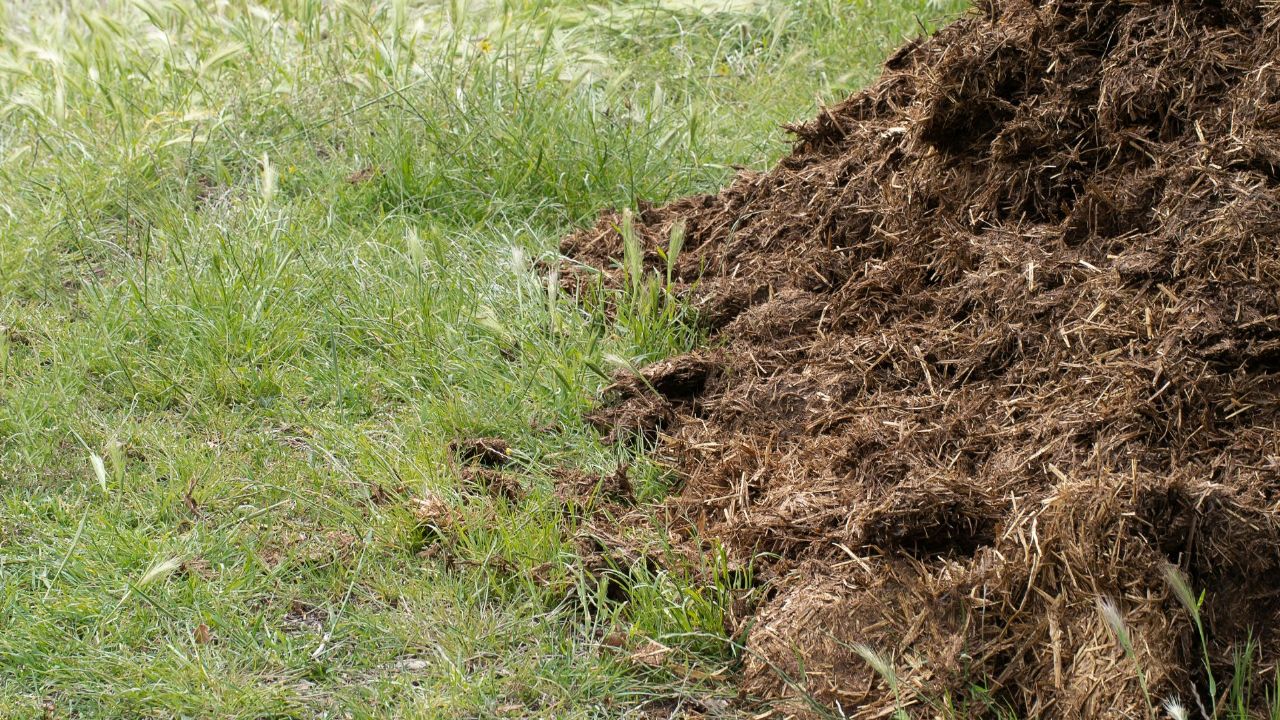Why do we recommend feeding horses from ground level?
How does the horse's jaw work? What happens if horses eat above ground level? Read the article to learn more...

With anthelmintic resistance on the rise, horse owners worry about parasitic worms in their horses and most of us have a variety of strategies to control them. If we can understand the worms’ life cycle, we can be more effective at managing them. Horses and their worms have co-existed for a very long time and our aim should not be to eliminate them totally – which would be nigh on impossible anyway – but to keep them under sufficient control that the horse’s natural immunity keeps them from suffering any ill health or disease. Worms, their eggs and larvae are part of the natural ecosystem and are food for a wide range of organisms, below ground and above it.
The worms' lifecycle - Adult worms in the horse’s gut lay eggs which are passed in the droppings. Eggs hatch into larvae which migrate from the dropping, move onto the grass are ingested by the horse, to complete their life cycle.
Worm egg counts - We can measure worm burden in the horse by counting the eggs in a sample of droppings, the faecal worm egg count. It is expressed as the total number of eggs in just 1 gram of dung. Millions of worm eggs can be produced in a day. In warm, damp conditions, the eggs hatch in as little as 4 days and start to wriggle away from the dung pile, travelling up to 3 metres or even more, to be eaten by a horse while grazing the grass with the larvae and repeating the cycle.
Immature worms don’t lay eggs and geriatric ones lay fewer eggs. Egg laying can be lower in the winter months, especially if it is very cold. So, although faecal worm egg counts are an exceptionally useful tool in monitoring worm burden, they do have their limitations.
Poo-picking is the go-to method for many yards in controlling worms. It needs to be frequent enough to remove the droppings before the larvae have hatched. It needs to be thorough, as even a small amount of muck left behind may have hundreds of worm eggs. The droppings once collected should be stacked well away (over 3 meters) from the grazed areas so that larvae cannot migrate back onto the grass.
Droppings removal over time is depleting the soil of organic matter which is vital to soil health. Impoverished soil can only lead the diminished grass health and ultimately, could impact on the horse’s wellbeing. Where there is sufficient acreage, fields can be rotated and the droppings harrowed for dispersal. In warm weather, most of the worm eggs will have hatched and the larvae perished for want of a host in around 6 weeks. There is very little activity when temperatures are below 10 deg. C. All manner of animal, fungal and plant species will flourish and provide food for organisms further up the food chain.
Certain species of worms, such as Acarids, can remain dormant as eggs for longer periods of time and may even be viable after a few years. Adult horses develop some immunity to these, but they can be a major issue for young horses. The same paddocks are best not used for youngsters year on year.
Where dropping collection is deemed necessary, such as on small areas and paddocks in constant use, the dung should be stacked and allowed to rot down. After a year, it will be safe to use as fertiliser, to put back that which the horses took out. Spread with a muck spreader or barrow it and spread with a dung fork. Give it 6 weeks to rot down and incorporate into the soil before turning horses out on the pasture.
Wormers are still an important tool in keeping the worm burden under control but use judiciously. For instance, those which also kill bots (ivermectin and moxidectin) are insecticide and will kill other insect species. The chemical can remain effective in the droppings for up to 45 days. These drugs are probably better used only in winter, when insect populations are largely dormant.
By understanding how worms operate, we can be more targeted in our approach and avoid throwing the ecological baby out with the parasitic bathwater.
For information and guidance about best de-worming practises, we recommend speaking with your vet.
Should you require nutritional advice, contact the Feed Line on 01728 604 008, or email info@simplesystem.co.uk
How does the horse's jaw work? What happens if horses eat above ground level? Read the article to learn more...
We're thrilled to be adding an exiting new event to the calendar for 2026!
Horses’ teeth change throughout their lives - they are continually growing and continually wearing, as they chew and grind their grazing and forage.